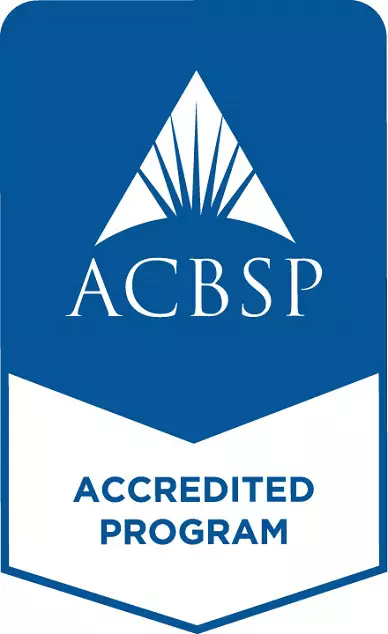
Online Bachelor's in Business (Operations Management Certificate)
Bachelor of Science in Business with an Operations Management Certificate
How does business theory become hands-on operations management? With the help of a Bachelor of Science in Business with an Operation Management Certificate you learn how to bridge the gap between areas such as marketing, analytics and business law to application of critical business principles in an organizational setting. Courses are just 5 weeks long, so they won’t get in the way of your busy life.
Ignite Your Passion
Start when you're ready
Courses
Browse courses for your online degree
Education should hold practical value. That’s why our courses meet rigorous academic standards and provide you with skills and knowledge immediately applicable to your career.
Look for this icon to see which skills you’ll learn in a course.
Requirements: 120 credits
You’ll need 120 credits to complete this Bachelor of Science in Business with an Operations Management Certificate program. Your course schedule may vary based on transferable credits or credits earned through the University’s Prior Learning Assessment.
Schedule
Both the on campus and online Bachelor of Science in Business with an Operations Management Certificate feature the same courses, and your academic counselor will help you plan your classes around your lifestyle. Please note that on campus students are required to physically attend class one day a week, typically from 6-10 p.m.
Earn career-relevant skills in weeks – not years.
Learning shouldn’t take years to put into practice. That’s why we’re empowering you to build career-relevant skills with every five- to six-week course.
We’ve worked with the labor market researcher Lightcast to identify in-demand skills for occupations and mapped those to our related associate, bachelor’s and master’s degree programs.
Tuition
Paying for school
Tuition is based on number of credit hours per course. Courses are typically 3 credits, but can range from 1-6 credits. Costs do not include savings opportunities like transfer credits and scholarships.
What affects the overall cost of my program?
Your full program cost can vary by:
- Savings opportunities. Your cost could be reduced with eligible transfer credits, scholarships, employer discounts and more. Students with eligible credits and relevant experience on average saved $11K and 1 year off their undergraduate degree at University of Phoenix.
With our Tuition Guarantee, you pay one flat, affordable rate from the moment you enroll to the day you graduate from your program.
Discover ways to save time and money on your degree with our Savings Explorer® tool:
Other ways to save on time and tuition
Because we believe everyone deserves an affordable education, we work hard to help our students achieve one. Here’s a few ways you can save time, save money and avoid starting from scratch.
Transfer credits
Your prior eligible college credits can lower your cost and help you graduate sooner. As a transfer-friendly university, we accept eligible credits from 5,000+ accredited institutions.
Employer tuition benefits
Are you employed? Check to see if your employer has an alliance agreement with us for education benefits. This can help you save money while gaining skills that could apply to your job.
Credit for life experience
We look at all your relevant experience, from parenting to past jobs, to help you get the college credits you deserve. For every 3 credits earned, shave 5 weeks off your degree.
Alumni savings
Are you a Phoenix alum? If so, you’re eligible for special tuition rates and can save up to $2,880 on a bachelor’s degree. You can also save with an alumni scholarship.
Military savings
If you’re an active-duty service member in the U.S. Armed Forces or an eligible spouse or dependent, you may be eligible for a lower, military tuition rate and can save on tuition.
National testing providers
Do you have expertise in a specific subject? Earn college credit based on your performance on national, standardized tests to save time and money on tuition.
We can help you get started
Chat with an experienced advisor who can guide you through tuition, financial aid, scholarships, transfer credits and more.
- View 1
- View 2
- View 3

Budget & borrow
How to pay for college
Paying for school can be intimidating, but we’re here to help you make sense of it. Our finance advisors can walk you through your options like federal financial aid and savings opportunities to minimize your debt. Plus, we can help you figure out your financial plan.
Careers & Outcomes
What can you do with a Bachelor of Science in Business with an Operations Management Certificate?
Discover where your degree might take you and make informed choices about your future.
An online degree can prepare you to be a:
- Production Manager
- Quality Assurance Supervisor (QA Supervisor)
- Logistics Specialist
- Supply Chain Specialist
- Store Manager
- Operations Manager
- General Manager
- Business Manager
Top skills learned in this program:
Communication
Leadership
Management
Operations
Operations and Supply Chain Management
Continuous Improvement Process

Ready to get started?
Start your application for free or request additional information.
What you’ll learn
When you earn your Bachelor of Science in Business with an Operations Management Certificate you’ll be equipped with a concrete set of skills you can apply on the job. You’ll learn how to:
- Integrate decision-making skills to address business needs.
- Integrate business concepts and principles to advance organizational goals.
- Analyze interrelationships among distinct functional areas of an organization.
- Analyze logistics involved in global business operations.
- Develop strategies to improve operational and logistical performance.
- Implement process improvements for business practices and operational and supply chain workflows.
17% Growth
According to the Bureau of Labor Statistics, job growth for logistician occupations is projected to be as fast as average between 2024 and 2034.
The BLS Projected Growth for 2024-2034 is published by the US Bureau of Labor Statistics. This data reflects the BLS’ projections of national (not local) conditions. These data points are not specific to University of Phoenix students or graduates.
Admissions
Apply for free – no application fee, no obligation.
Starting your degree is a big decision — and we want you to feel great about it. That’s why we remove obstacles from your application.
- No SAT/ACT required
- No essay required
- No cost, risk-free trial for eligible students
- We’ll request transcripts at no cost to you, when possible, and we accept eligible credits from over 5,000 accredited institutions.
How to enroll at University of Phoenix
Receive 1-on-1 support
You have a support team of real people you can lean on. And our academic counselors, who are with you every step of the way, have earned a 5-star rating from 90% of our surveyed students.[1] Start a conversation with an enrollment representative today.
[1] Transactional Survey, August 2021-22 (18,645 respondents)

Call or chat with us 7 days a week.

Gabriel G., Enrollment Rep
Receive 1-on-1 support
You have a support team of real people you can lean on. And our academic counselors, who are with you every step of the way, have earned a 5-star rating from 85% of our surveyed students.[1]
[1] Transactional Survey, September 2022-August 2023 (23,739 respondents)
Start a conversation with an enrollment representative today.
Call us at 844-937-8679 or chat with us 7 days a week.
Student Experience
An education that fits your busy life
Balancing family, work and school
Work toward your degree without giving up what matters most. Start your degree year-round and take one class at a time.
Online learning
Enroll in online classes and attend class whenever it fits your life, day or night.
Around-the-clock support and resources
You have a support team available up to 14 hours a day, 5 days a week.
Computer requirements for courses
Many course assignments will require you to use a computer to complete and submit your assignment.

Faculty Spotlight
Professionals dedicated to you
Your success is a top priority for our deans and faculty members. They bring an average of 28+ years of experience and hands-on perspective to the classroom, and help bridge the gap between academics and industry knowledge.
Accreditation
Count on the quality of your education
Programmatic Accreditation
Our BSB has been reaffirmed for accreditation until 2027 by the Accreditation Council for Business Schools and Programs (ACBSP), ensuring the quality of your education.
What does that mean in real life? ACBSP-accredited business programs are committed to quality standards. The quality of the program is regularly benchmarked against specific criteria that prepare students for the business industry. Accreditation occurs on a 10-year cycle with regular quality reviews.
View the student achievement report (PDF) for the University of Phoenix ACBSP-accredited business and accounting programs.

Frequently asked questions about the Bachelor of Science in Business with an Operations Management Certificate degree
An operations management certificate requires 18 total credit hours and 6 operations management courses. By including an online bachelor’s business degree, you receive a broader scope of business knowledge and skills that can enhance your professional education beyond an operations management certificate.
You can take an operations management certificate online while concurrently enrolled in a traditional college or university.
You can also enroll in the Bachelor of Science of Business with an Operations Management Certificate degree. The core operations management certificate courses are included in the program. This way you gain the specialized skills of an operations management certificate and the broader scope of knowledge and skills learned in a bachelor’s degree. You can strengthen your professional contribution to an organization that goes beyond operations management.
While enrolled at University of Phoenix you can also check out other business certificates online to enhance your business skills.
Depending on the transfer requirements of the college or university, you may be able to transfer your operations management certificate credits.1
You can also enroll in the Bachelor of Science of Business with an Operations Management Certificate program at University of Phoenix. The core operations management certificate courses are already included as electives in the program.
At University of Phoenix, if you choose to enroll in another online business degree you may be able to transfer business certificate credits, depending on the program.
Explore other business degrees with management certificates:
Bachelor of Science in Business with a General Management Certificate
Bachelor of Science in Business with a Human Resource Management Certificate
Bachelor of Science in Business with a Leadership and Management Certificate
Bachelor of Science in Business with an Operations Management Certificate
Bachelor of Science in Business with a Small Business Management and Entrepreneurship
1Transferability of credit is at the discretion of the receiving institution. It is the student’s responsibility to confirm whether credits earned at University of Phoenix will be accepted by another institution of the student’s choice.
While widely available, not all programs are available to residents of all states. Please check with a University Enrollment Representative.







